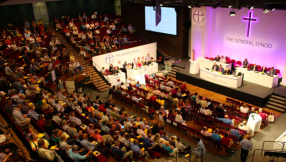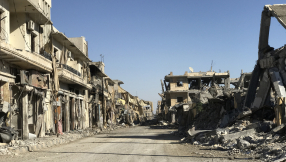Rate rise needed despite gloom
Quarterly forecasts from the National Institute of Economic and Social Research, published on Friday, show inflation will peak at 4.3 percent in the third quarter - more than double the Bank of England's 2 percent target.
Although wage pressures so far have been muted, the institute argues the Bank should take pre-emptive action to ensure a wage-price spiral does not develop.
"The Bank of England needs to send a sharp signal that they are still focused on their inflation remit," said Simon Kirby, an economist at NIESR. "Given the balance of risks, an increase in the Bank Rate would be appropriate this year."
The institute is pencilling in one quarter-point rate hike to 5.25 percent in the third quarter of this year.
Its call for higher rates puts it at odds with the majority of economists who think the next move will be down. However, it falls in line with consensus in predicting a grim few years for the economy.
GROWTH SLOWDOWN
The institute forecasts growth will slow to 1.5 percent in 2008 - less than half last year's 3.1 percent rate - and 1.4 percent in 2009.
"If these rates of growth are realised then it will be the weakest period of growth the UK has experienced since the recession of 1990-91," said Kirby.
The combination of weaker real income growth and further house price falls are likely to take a particularly heavy toll on the consumer.
Indeed, household spending is likely to contract next year for the first time since 1991, leaving the economy dependent on exports and government spending.
While the institute is critical of the state of public finances, it argues it would be better for the government to break its fiscal rules than raise taxes at a time when the economy is so weak.
"The framework was not well designed and needs replacing with one that genuinely places a constraint on behaviour in periods where there should be surpluses but leaves space for deficits when conditions are poor," said Kirby.
He identified Europe's Stability and Growth Pact as a better model since it imposed a penalty when the rules were broken and ensured the fiscal framework remained steady, regardless of government.
"Investors need to know a change of government will not mean a change in the rules," he said.













